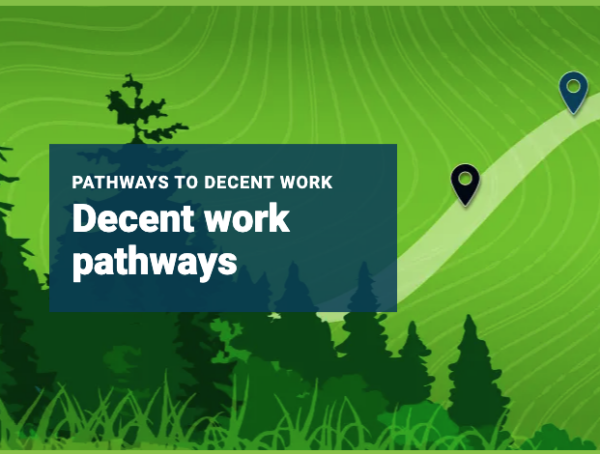Explore eight pathways, and numerous resources to help your organization advance decent work and equity for Black, Indigenous, and/or racialized people in our sector. Different organizations will be a different starting point in this journey, and you are encouraged to explore based on your current context. For those who are unsure of where to begin, it is recommended to start with the Charter, then make your way through from pathway one to eight.
Background
The initial Pathways to Decent Work tool was created in 2018 by Ontario Nonprofit Network (ONN), adapted from the work of Toronto Neighbourhood Centres (TNC). For ONN, decent work as a framework, policy priority and practice has striven to enhance the working conditions of workers from all levels across the nonprofit sector. The creators of the tool intentionally honour the lineage of how they arrived at the third edition of what was formerly known as the Decent Work Charter and Checklist.
It is also critical to acknowledge the countless Indigenous, Black and/or racialized workers across Ontario’s nonprofit sector that supported this review process, especially the Black, Indigenous and Racialized Affinity Group within TNC. Learnings that supported the adaptation of the previous charter and checklist required the commitment, and emotional labour of nonprofit workers impacted by racism, ongoing colonialism, and other intersecting oppressions. As you use the various pathways, you are invited to remain in deep gratitude for the time, energy, and commitment of those workers who influenced this process.
This revised document merges the previously separate TNC BIPOC(Black, Indigenous and People of Color) Checklist and the Decent Work Checklist. This revision was initiated after ONN conducted a series of focus groups and listening sessions from 2022 to 2023, to review and assess the two documents. The feedback received recommended that a centralized and different way of understanding these pathways might be helpful. Treat the pathways as living and dynamic, as they will shift when more voices and experiences join the table, and as our world changes.





